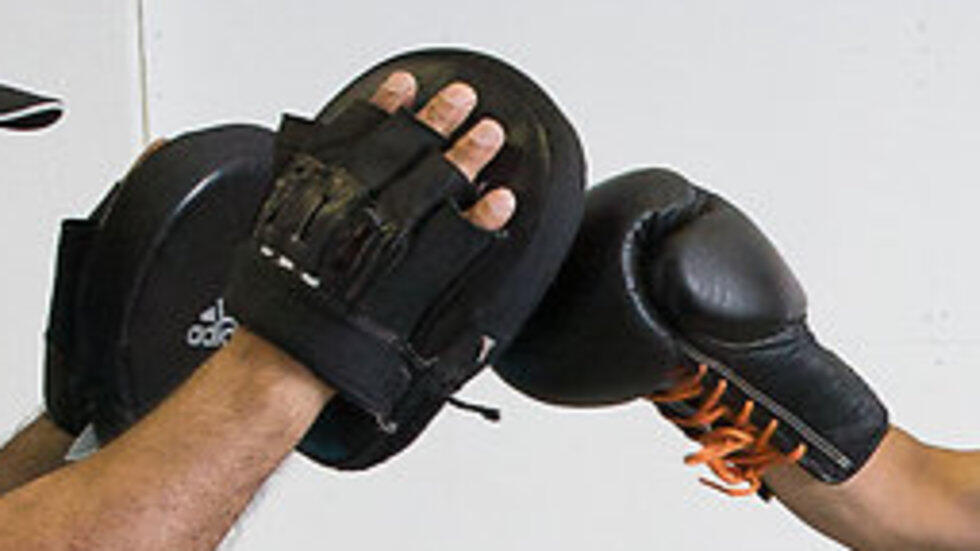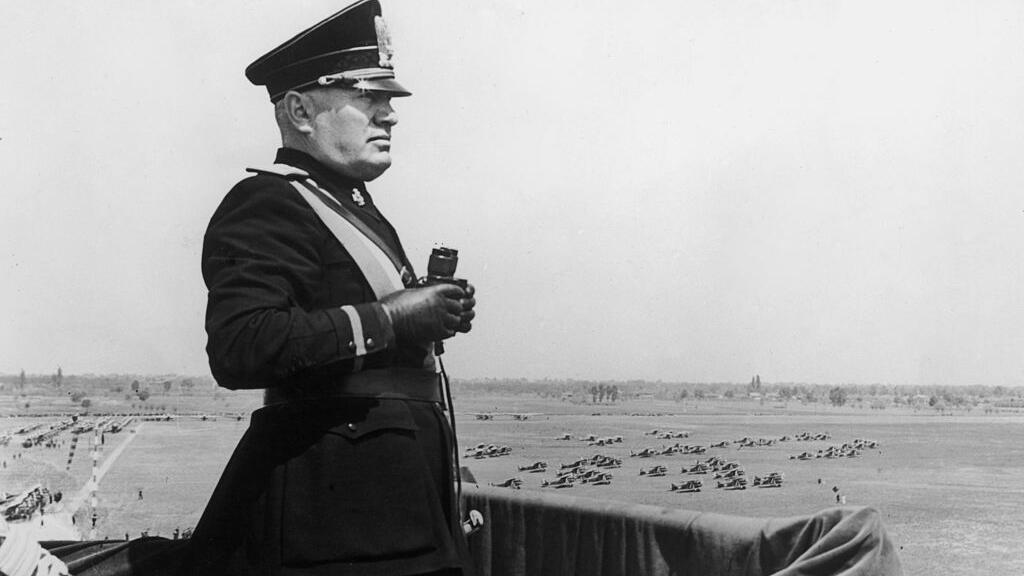Aaron Efrati has a vision: To open a boxing club that will commemorate his great-grandfather, Leone Efrati. It may seem like a trivial gesture, but it spotlights a fascinating story from the darkest period in history.
“I think that there should be a club that will carry his legacy and commemorates his life story, such as the time he hurt his leg but didn't leave the boxing ring. Or his Jewish identity, which he kept, persevered even, during times it destroyed everything for him,” Aaron Efrati said.
“His values, like family, I think all of these will make the club unique.”
Leone Efrati was one of seven siblings in a sizable Jewish Italian family. He took up boxing when he was 15 years old and, by the 1930s, was one of the top boxers in Italy, undefeated in 11 bouts.
He even caught the attention of the son of Italy’s fascist ruler Bruno Mussolini, who admired him.
“They were actually friends, and he got a gold medal from him for diving from a bridge on the Tiber River in Rome,” said his son, Aaron Romolo Efrati Sr., who immigrated to Israel from Italy in 2010 and now lives in the southern coastal city of Ashkelon.
The turning point for Efrati came in the 1930s when he was invited to the United States to fight some of the best featherweight boxers of the time. And the peak came in 1938 when he took on National Boxing Association World Featherweight Champion Leo Rodak.
He lost over ten rounds.
“Many of the spectators found the match unfair and thought my father should have won,” Aaron Romnalo Efrati remembered.
The defeat notwithstanding, Efrati hoped to continue his boxing career in the U.S. Still, the growing war clouds in Europe presented him with an age-old dilemma – his career or his family.
He was supposed to fight Leo Rodak again, but this never happened.
“In 1939, Mussolini enforced racist laws against the Jews, and all their passports were revoked. His family was set to travel to the U.S., but they couldn't. Although my father was successful and made some money in the U.S., he decided to return to his family in Italy,” his son stated.
Returning to Italy, Leone Efrati hid his Jewish identity and worked as a salesman. He was unable to fight officially as his boxing license had been canceled. But at night, he would sneak to the gym to train.
“The only reason he was able to do it was because the doorkeeper there was his friend. My father wanted to train because he believed that in the end, the situation would return to what it used to be, and he'd be fighting again,” Aaron Romalo Efrati said.
Leone Efrati’s luck ran out when two Fascist Party members recognized him in the street. They called the police and turned him in. Efrati and his family were taken to the detention center in Tasso street, where Jews were detained and tortured.
Aaron Romalo Efrati managed to escape, but the rest of the family were deported to the German camps. Leone was sent to Auschwitz and then to Ebensee, Austria. In the camps, he was forced to fight boxing matches in order to entertain the guards.
There is evidence that Leone was killed after being forced to fight a heavier boxer. Leone won, and the guards who bet against him were furious, they beat his brothers in retaliation. When Leone found out, he confronted the Nazi guards and was beaten to death.
Aaron vividly remembers the last moments he had with his father.
“When we were in the prison in Rome, shortly before we were deported, my dad talked to me and asked me, ‘What is your name?’ I answered, ‘Romolo Efrati.’ He asked me, ‘What is your address?'" I told him the full address."
“He also asked me, ‘What are you?’ and I said, ‘I'm a Jew.’ My father wanted me to say it out loud, that I am Jewish, that this is my identity,” Aaron Romalo Efrati said. To emphasize the point, he took on his current first name, to give this Jewish identity precedence over his Italian.
What would have happened if Leone had won the fight against Rodak? Would he have used his status as world champion to save his family? No one can say for sure. But now his family is continuing its fight to keep alive his legacy.




